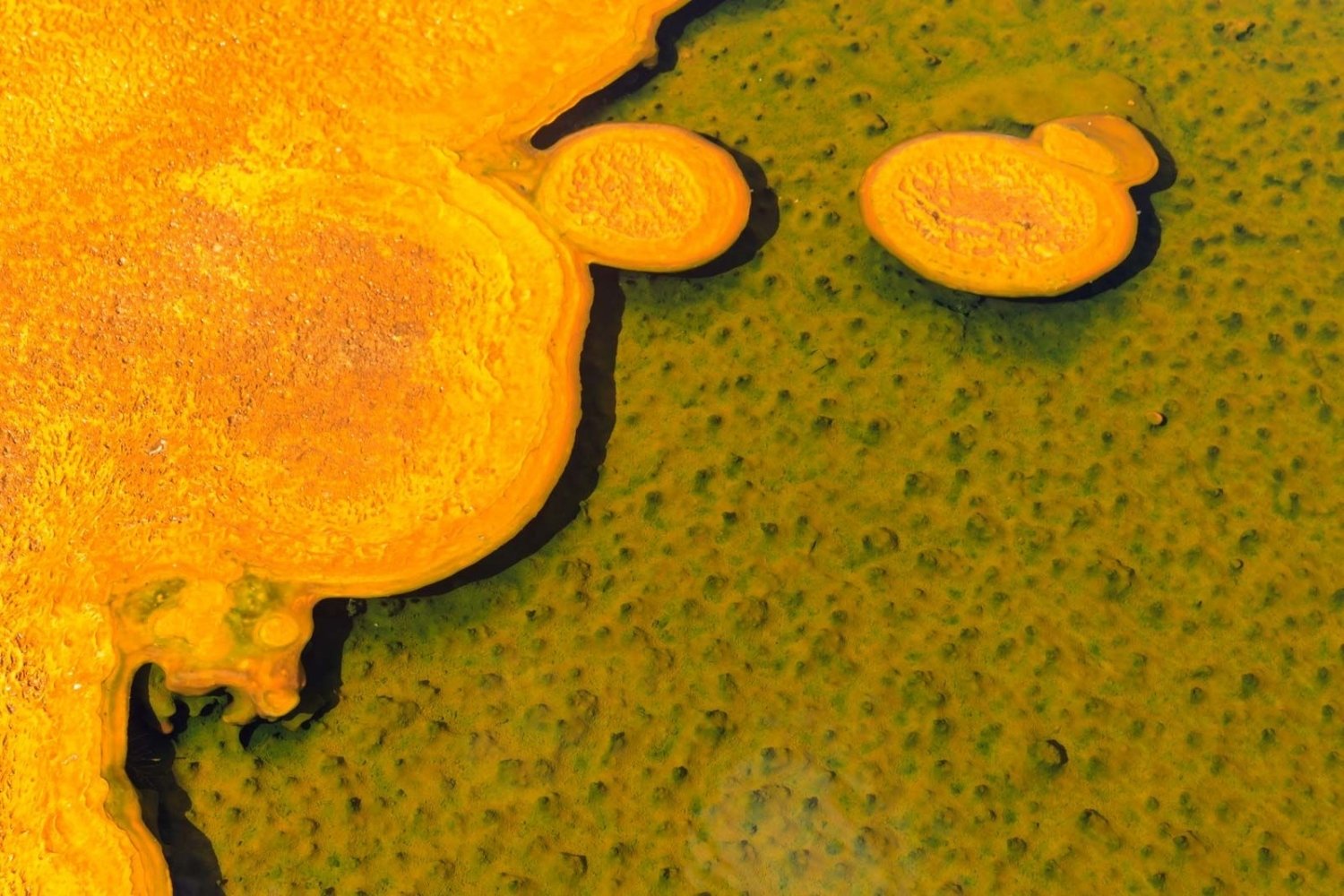
What are alkaliphiles? Alkaliphiles are microorganisms that thrive in environments with high pH levels, typically above 9. These hardy organisms can be found in places like soda lakes, alkaline soils, and even industrial waste. Why are they important? Alkaliphiles play crucial roles in various ecological processes, including nutrient cycling and organic matter decomposition. They also have significant industrial applications, such as in the production of enzymes used in detergents, biofuels, and pharmaceuticals. How do they survive? These microorganisms have unique adaptations, like specialized cell membranes and enzymes that function optimally in alkaline conditions. Curious to learn more? Dive into these 27 fascinating facts about alkaliphiles to uncover their secrets and understand their importance in both nature and industry.
What Are Alkaliphiles?
Alkaliphiles are fascinating microorganisms that thrive in environments with high pH levels. These unique organisms have adapted to survive and flourish in conditions that would be hostile to most life forms.
- Alkaliphiles are microorganisms that prefer environments with a pH level of 9 or higher.
- They can be found in places like soda lakes, alkaline soils, and even industrial waste sites.
- These organisms include bacteria, archaea, and some fungi.
How Do Alkaliphiles Survive?
Surviving in such extreme conditions requires special adaptations. Alkaliphiles have evolved unique mechanisms to maintain their cellular functions.
- Cell membranes of alkaliphiles are specially adapted to prevent the loss of protons, which is crucial for maintaining pH balance inside the cell.
- They produce enzymes that are stable and active at high pH levels, unlike those in most other organisms.
- Alkaliphiles often have efficient ion pumps to expel excess sodium ions, which helps them manage the high pH environment.
Where Can You Find Alkaliphiles?
These hardy microorganisms are not just limited to natural environments. They can also be found in some surprising places.
- Soda lakes like those in East Africa are prime habitats for alkaliphiles.
- Alkaline soils, often found in arid regions, also host these organisms.
- Industrial waste sites with high pH levels can become unexpected homes for alkaliphiles.
- Some household cleaning products, which are highly alkaline, can also harbor these microorganisms.
Why Are Alkaliphiles Important?
Alkaliphiles are not just scientific curiosities; they have practical applications that can benefit various industries.
- Bioremediation: Alkaliphiles can help clean up industrial waste by breaking down harmful substances.
- They are used in the production of biofuels, offering a sustainable energy source.
- Enzymes from alkaliphiles are used in laundry detergents to break down stains more effectively.
- These enzymes are also used in the food industry for processes like baking and brewing.
Interesting Facts About Alkaliphiles
Beyond their scientific and industrial importance, alkaliphiles have some intriguing characteristics that make them stand out.
- Colorful colonies: Some alkaliphiles produce pigments that can turn their colonies bright colors, like pink or orange.
- They can survive in environments with very low nutrient levels, making them incredibly resilient.
- Alkaliphiles can form biofilms, which are protective layers that help them survive harsh conditions.
- Some species can even tolerate high levels of radiation, adding to their list of extreme survival skills.
Alkaliphiles in Research
Researchers are continually discovering new aspects of alkaliphiles, leading to exciting developments in science and technology.
- Genetic studies: Scientists are studying the genes of alkaliphiles to understand how they adapt to high pH environments.
- These studies could lead to the development of new biotechnological tools and processes.
- Alkaliphiles are being explored for their potential in carbon capture technologies, which could help combat climate change.
- Research on alkaliphiles is also contributing to our understanding of life's potential on other planets, where extreme conditions may exist.
Fun Facts About Alkaliphiles
These microorganisms have some quirky traits that make them even more fascinating.
- Ancient lineage: Some alkaliphiles have ancient evolutionary lineages, dating back billions of years.
- They can produce unique compounds that have antimicrobial properties, potentially leading to new antibiotics.
- Alkaliphiles can communicate with each other through chemical signals, coordinating their activities.
- Some species can switch between being alkaliphilic and neutral-loving, depending on environmental conditions.
- They play a crucial role in nutrient cycling, helping to break down organic matter and recycle nutrients in their ecosystems.
The Wonders of Alkaliphiles
Alkaliphiles are fascinating microorganisms thriving in extreme environments. These hardy creatures not only survive but flourish in conditions that would be hostile to most life forms. Their unique adaptations allow them to maintain cellular functions in high pH levels, making them invaluable in various industries. From waste treatment to biofuel production, their applications are vast and impactful.
Understanding these organisms helps scientists develop new technologies and processes. Their enzymes, stable in alkaline conditions, are particularly useful in industrial processes, including detergents and pharmaceuticals. Alkaliphiles also play a crucial role in ecological balance by breaking down organic matter in alkaline environments.
Exploring the world of alkaliphiles opens doors to innovative solutions and a deeper appreciation for life's resilience. These tiny powerhouses remind us that life can adapt and thrive in the most unexpected places, offering endless possibilities for scientific and industrial advancements.
Was this page helpful?
Our commitment to delivering trustworthy and engaging content is at the heart of what we do. Each fact on our site is contributed by real users like you, bringing a wealth of diverse insights and information. To ensure the highest standards of accuracy and reliability, our dedicated editors meticulously review each submission. This process guarantees that the facts we share are not only fascinating but also credible. Trust in our commitment to quality and authenticity as you explore and learn with us.
